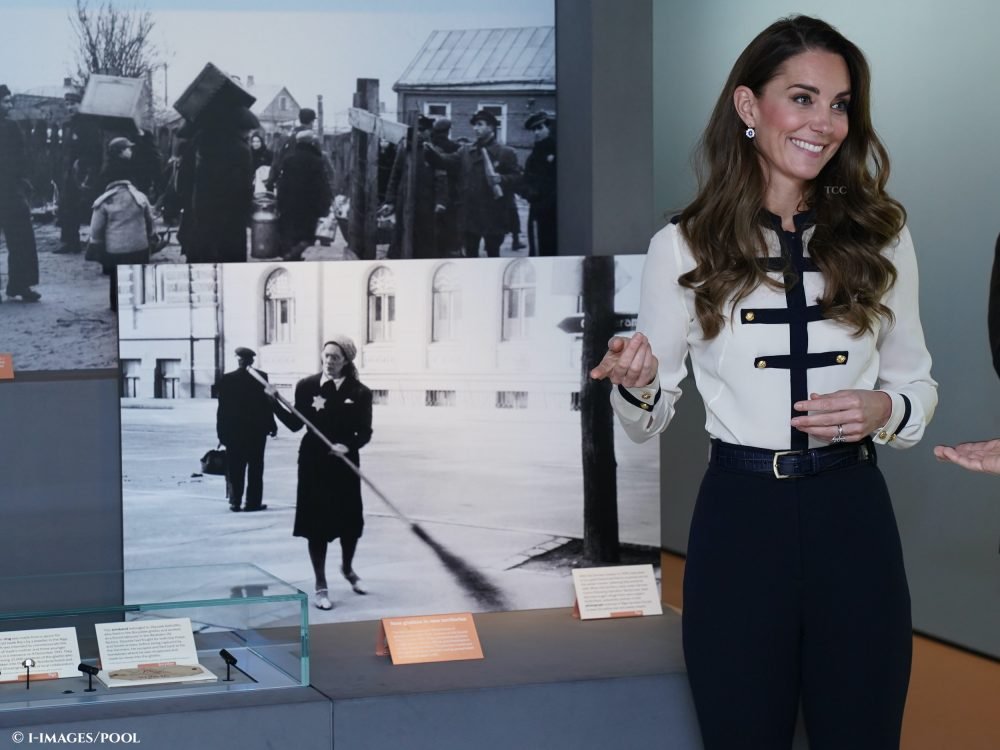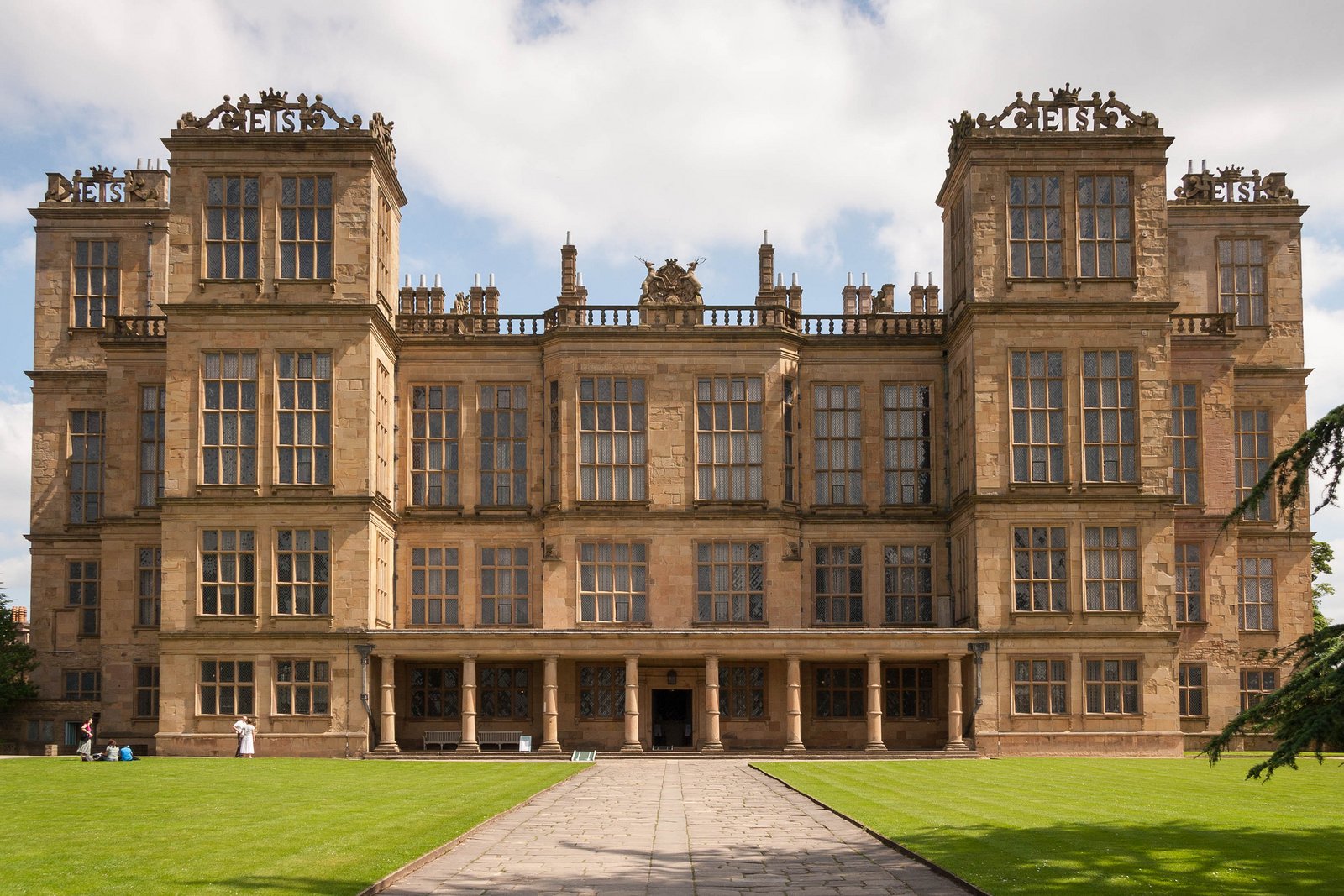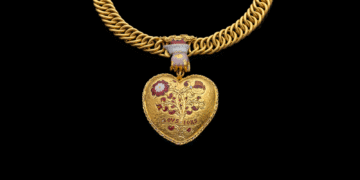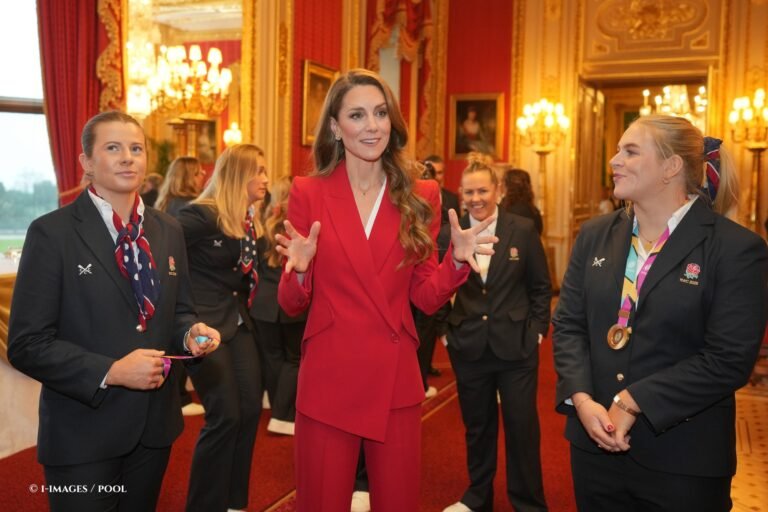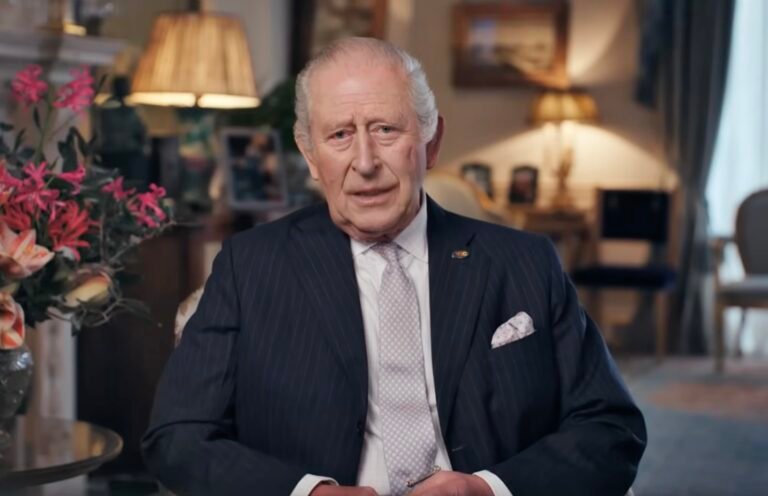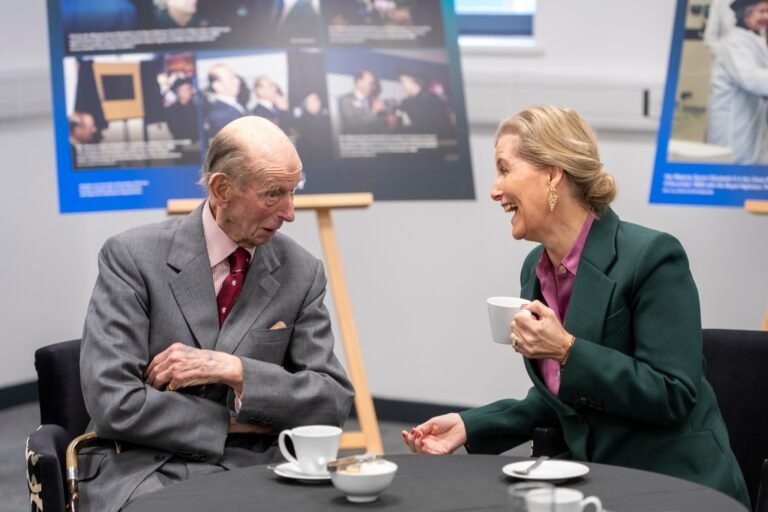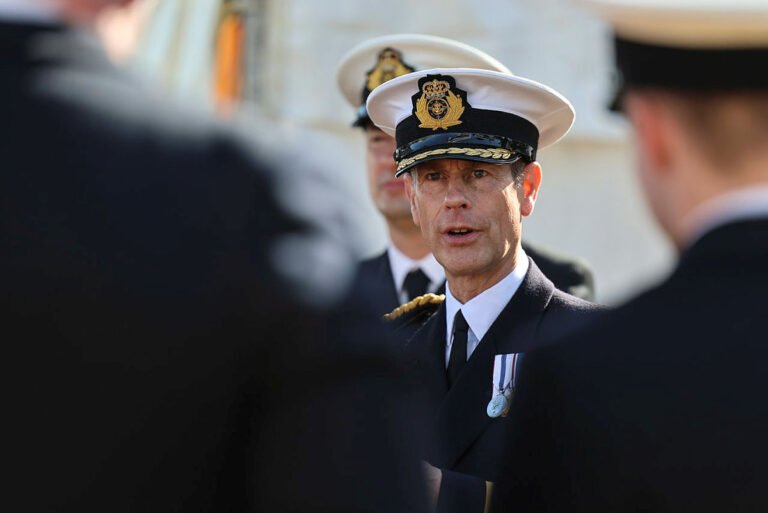The Duchess of Cambridge paid a visit to the Imperial War Museum in London on Thursday night, to open two new galleries associated with the Second World War. The engagement coincided with Remembrance Week.
The two new galleries are the Second World War Galleries and The Holocaust Galleries. The first features over 1,500 collection items from 80 countries while second feature over 2,000 photos, books, artworks, letters and personal belongings, which help to tell the stories of some of the Jewish people who were killed during the Holocaust.
Catherine visited the Second World War Galleries first, then The Holocaust Galleries, touring both with members of staff, who explained the different items on display.
The Second World War is not a strange topic to Catherine, who’s grandfather, Captain Peter Middleton, was an RAF pilot during the war and her grandmother, Valerie Glassborow, alongside twin sister, Mary, worked at Bletchley Park during the war.
The Duchess learned about the Battle of Britain before she saw if codebreaking ran in the family by having a go at an Enigma codebreaker machine. Before finishing the tour, the Royal called the gallery ‘amazing’ and said that she ‘can’t wait to bring my kids’.
During the tour, Catherine unveiled a plaque to officially open the two new galleries before she was then taken to see Generations: Portraits of the Holocaust.
The Portraits of the Holocaust exhibit features over 50 photographic portraits of Holocaust survivors and their families, two of them taken by the Duchess herself in January 2020. She was reunited with the subjects of her portraits during the visit – Stephen Frank and Yvonne Bernstein, alongside their grandchildren who also appear in the portraits.
Both Stephen and Yvonne have harrowing stories of their childhood. Stephen’s father was killed by the Nazis after he spoke out against them and Stephen was sent to multiple concentration camps with his mother and brothers. He and his brothers were among the 93 out of 15,000 children to survive Theresienstadt concentration camp.
Yvonne spent most of her time during the war in hiding in France. While she survived, her uncle was captured and then murdered because he was found to be shielding her from the Nazis.
Both of them, alongside their granddaughters, visited Kensington Palace in January 2020 where they told their stories to the Duchess and were photographed by her. The portraits were originally released in the same month and now form part of the exhibit which is a collaboration between Royal Photographic Society and the Holocaust Memorial Day Trust.
Back then, The Duchess of Cambridge had said Stephen and Yvonne were ‘two of the most life-affirming people that I have had the privilege to meet’ and that ‘their stories will stay with me forever’. That was clear to see yesterday, when they were reunited again in person for the first time in nearly two years.
Including two images captured by The Duchess. Holocaust survivors, Zigi and Manfred, who The Duchess first met in Stutthof in 2017 and spoke to again to mark holocaust Memorial Day this year, appear in the exhibition as do the stories of the Windermere Children. pic.twitter.com/bD2Gn3AmhK
— The Prince and Princess of Wales (@KensingtonRoyal) November 10, 2021
“I want to give you a big cuddle!” Kate told Stephen upon seeing him with his granddaughters, and Mr Frank happily obliged as he wrapped his arms around the royal.
Catherine also received a gift from Stephen, a letter written by an American serviceman to his mother after she had sent him a card – telling the Duchess that he thought she ‘might like to read it’. Catherine then thanked Mr Frank and Maggie and Trixie for trusting her to take the portrait and for being patient with her when the session was taking place.
Upon being reunited with Yvonne and her granddaughter Chloe, and another hug, the royal visitor said: “I think about the sitting so often, it was such a wonderful opportunity.”
The conversation went from Yvonne’s concern for Catherine’s cold hands to families, and working as a mother. Yvonne asked the Duchess if, with the work she does, she gets to see her children. The Duchess told her that she does and that ‘they’re my priority’.
The Duchess also met with other Holocaust survivors who had had their portraits taking for the exhibit, including John Hajdu and his teddy bear, which survived the war alongside him. The Duchess told Mr Hajdu that ‘what I love is the personal stories, told in context, like your teddy’.
Moved by all that she had seen and heard, Catherine said that it was the personal stories behind the items that mean the most to her and that she hopes that ‘parents explain these stories to their children to ensure it never happens again.’. Something that we should all hope for on this Remembrance Week.

